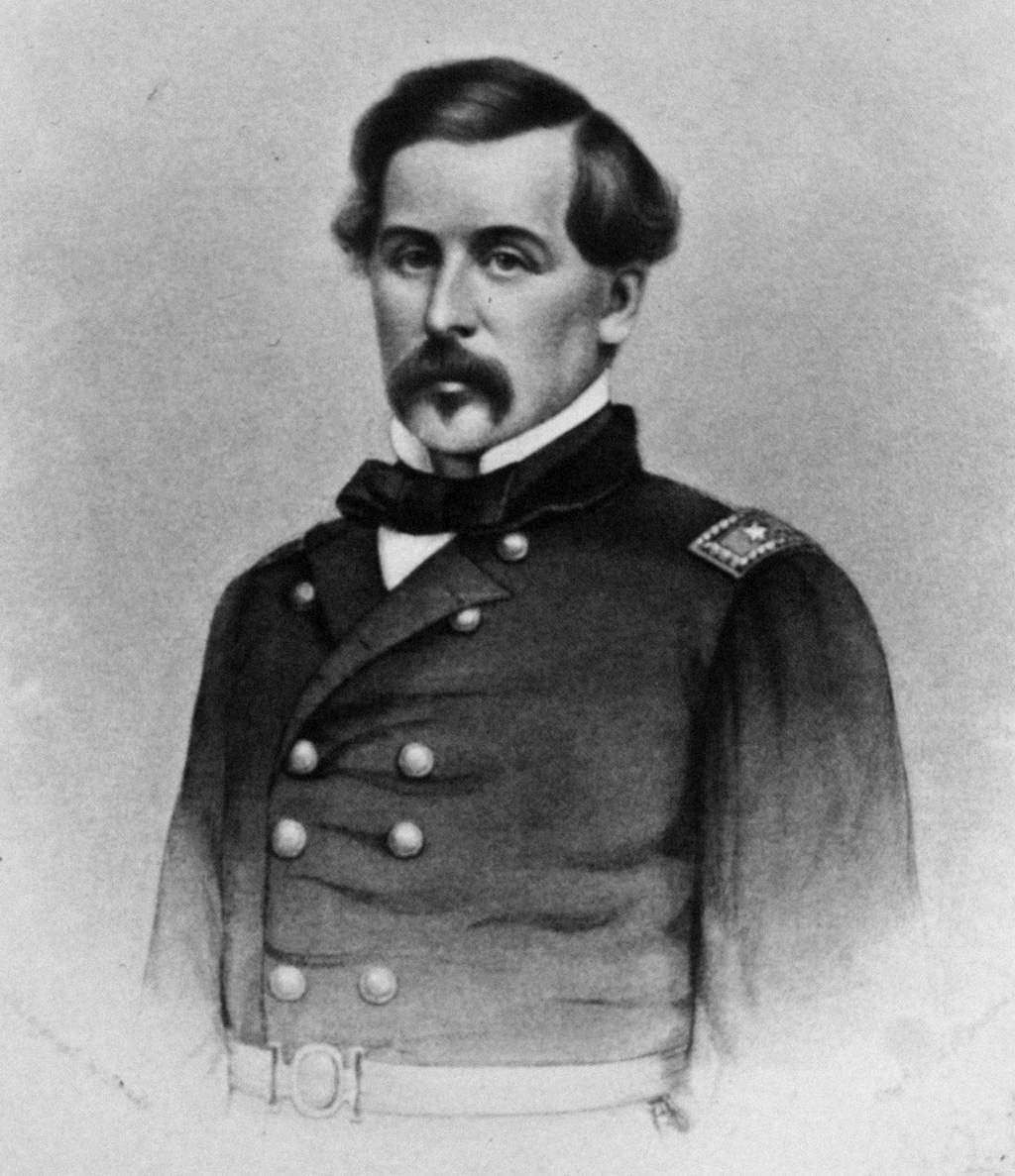Thomas Francis Meagher was an Irish nationalist and leader of the Young Irelanders in the Rebellion of 1848. After being convicted of sedition, he was first sentenced to death, but received transportation for life to Van Diemen's Land in Australia.
In 1852, Meagher escaped and made his way to the United States, where he settled in New York City. He studied law, worked as a journalist, and traveled to present lectures on the Irish cause. He married for a second time in New York. At the beginning of the American Civil War, Meagher joined the U.S. Army and rose to the rank of brigadier general. He was most notable for recruiting and leading the Irish Brigade, and encouraging support among Irish immigrants for the Union. By his first marriage in Ireland, he had one surviving son; the two never met.Following the Civil War, Meagher was appointed Montana's Territorial Secretary of State by President Andrew Johnson, and served as acting territorial governor. In 1867, Meagher drowned in the swift-running Missouri River after falling from a steamboat at Fort Benton. Timothy Egan, author of a 2016 biography on Meagher, suggested Meagher may have been murdered by Montana political opponents, a theory that has found little support.
Wikipedia
✵
3. August 1823 – 1. July 1867
